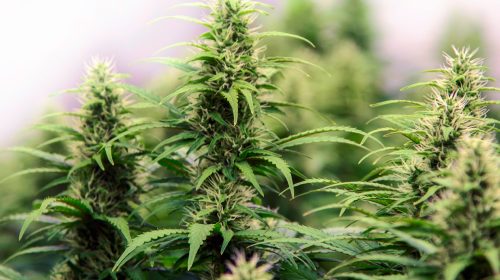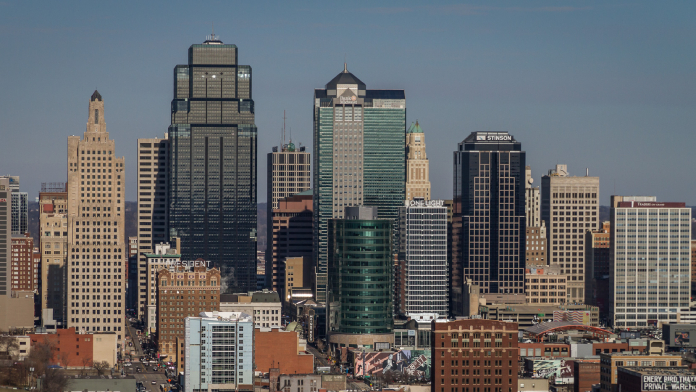Expert Insights
I was happy to hear that the Jackson County Legislature recently decided to invest $2 million in social service organizations across the metro area that focus on unhoused people, substance use and addiction treatment, and behavioral health programs. In my opinion, this is the best approach to treating addiction because it doesn’t exist in a silo. Oftentimes people lose their home and many people who use substances also have mental health disorders. Seeing that Jackson County wants to invest in life, in my opinion, will serve far more people than just incarcerating people for drug use. I think this is how we truly deal with the addiction crisis in Kansas City and our country.
~ Olivia Pennelle
How Expensive is Drug Rehab in Kansas City?
It is estimated that, statewide, 19,996 individuals receive rehabilitation for chemical abuse annually.2 An inpatient rehab patient can expect to pay $56,782 for the program, while an outpatient rehab participant would pay $1,710. The cost of treatment is dependent on multiple factors, including:
- Amenities
- Duration of the program
- If insurance is accepted
- Available government funding
- Location
- Inpatient vs. outpatient
As most of the drug rehabs in Kansas City are operated by private companies and charities, government subsidization of care may be limited. Additionally, there may be a shortage of inpatient spaces within the Kansas City metropolitan area. Despite this, you will be able to find a program that best works for you. Many treatment centers in the area accept insurance, potentially subsidizing all or part of the treatment cost.
Amenities like gyms, spas, and massage therapy may inflate the cost of treatment. It is important to find a center that both offers the services you need at a price affordable to you. While the state only offers eight free rehabilitation centers, many use a sliding scale to make fees affordable, charging only what is reasonable for your financial situation.
Are There Low-Cost and Free Drug Rehab Centers in Kansas City?
The following resources are among the low-cost, free, or sliding-scale rehabilitation centers in Kansas City:
- Mattie Rhodes Center. 148 North Topping Avenue, Kansas City, MO 64123 (outpatient, Spanish-speaking)
- Swopes Health Services Imani House. 3950 East 51st Street, Kansas City, MO 64130 (inpatient, outpatient)
- Adult Rehabilitation Center. 1310 East 10th, Kansas City, MO 64106 (inpatient)
- Guadalupe Center, 2600 Belleview, Kansas City, MO 64108 (outpatient, Spanish-speaking)
- ReDiscover Treatment Options Program. 8800 Blue Ridge Boulevard, Kansas City, MO 64138 (outpatient)
- Heartland Center for Behavioral Change. 1534 Campbell Street, Kansas City, MO 64108 (outpatient).
Besides opting for a low-cost facility, one can help fund a treatment plan in various ways, including:
- Applying for individual rehab scholarships
- Applying for grants offered through SAMHSA
- Raising money on a crowdfunding site
- Finding a center that offers financing or payment plans.
How Do You Pay for Addiction Treatment in Kansas City?
In general, rehab is covered either in part or fully by insurance. The Affordable Care Act has extended affordable rehabilitative and psychiatric care by making addiction no longer a pre-existing condition. ACA-sponsored insurance plans include coverage for the following:
- Addiction evaluation
- Addiction treatment medication
- Alcohol and drug testing
- Anti-craving medication
- Brief interventions
- Clinic visits
- Family counseling
- Home health visits
- Inpatient services
Depending on the type of Health Insurance Marketplace plan you have, 60%-90% of the addiction expenses are covered.
Non-Medicaid accepting facilities are exempted from accepting insurance for patient care. Despite this, many facilities offer subsidized care or payment plans.
Private Insurance
As an Essential Health Benefit, private insurance policies are required to offer some form of chemical dependence rehabilitation. The amount of coverage and the providers that the insurance reimburses will vary from plan to plan; it is important that you contact your insurer to learn your coverage limits and what providers are in-network. Out-of-network providers may be subject to lower coverage limits or may not be covered at all.
Medicare
As a rule, Medicare does not specifically cover alcohol rehab or drug rehab. The senior’s public option health insurance program, instead, covers what is deemed to be reasonable and necessary. This may include, but is not limited to:
- Inpatient treatments, including behavioral rehab, medication-assisted treatment, and medically supervised detoxification and withdrawal management
- Outpatient treatments, including behavioral rehab and counseling
- Partial Hospitalization Programs treatments, including occupational and activity-based therapies and individual and group psychotherapy
Medicaid
Medicaid is a low-cost or free publicly funded health insurance program. Unlike Medicare, it is not limited by the participant’s age, making it the most likely means to pay for treatment for those that do not have private or employer-sponsored health insurance. Most public hospitals and health facilities will take Medicaid.
As Medicaid is the primary insurance policy of Health Insurance Marketplace, Medicaid coverage is the same as ACA-secured health insurance plans, with coverage ranging from 60% to 90% of all eligible rehabilitation costs.
Does My Insurance Plan Cover Addiction Treatment?
It can be difficult to find a program that both meets your needs and is affordable. If you have an insurance plan, you can contact its customer service department by calling the number on the back of your card. The insurance representative should be able to tell you what providers are in-network and offer the services you are looking for.
If you need further help, do not hesitate to get help today at
800-681-1058
(Who Answers?)
.
How to Finance Addiction Treatment in Kansas City, MO
If you do not have insurance and free rehab programs are unavailable to you, other alternatives are available.
Find a Program That Offers Payment Plans: Rehab scholarships are available directly through addiction treatment programs, as well as third-party organizations, to cover the cost of drug rehab. You typically have to apply, verifying your financial information and the need for treatment.
Apply for a Rehab Scholarship: Limited opportunities exist for scholarships or grants that cover the costs of treatment. You typically need to apply for these funds, and there is no guarantee that you will receive assistance. You can learn more about these options by speaking to staff at your facilities.
Sliding Scale Rehab Program: Sliding scale payment programs take into consideration your ability to pay, such as looking at your income and adjusting their costs accordingly. Many charity-based therapy centers offer a sliding scale payment plan. During the intake process, programs that use a sliding scale will ask additional questions about your income and other assets.
How Does Kansas City Compare in Alcohol and Drug Use?
Like so many other metro areas, Kansas City has not been able to avoid the impacts of drug and alcohol addiction. The fallout from addiction costs the city millions every year in medical and legal fees, not to mention the toll it takes on society. As the 29th most populous metropolitan area in the country, there are nearly 45 accredited alcohol and drug rehabs in Kansas City, Missouri.1
According to the Substance Abuse and Mental Health Services Administration’s National Survey on Drug Use and Health, 13.1% of the Kansas City Metropolitan Statistical Area population aged 12 years or older has used an illicit drug.1

9.6% residents admitted to using marijuana in the last year

8.6% residents reported having a substance use disorder

25.2% residents admitted to binge drinking at least once in the last month

293 rehab facilities in the city, with eight offering free treatment for all patients.
It is estimated that per every 10 fatal overdoses statewide, two of those people sought treatment beforehand.2
Drug and Alcohol Laws in Kansas City
Civil Involuntary Detention: Under Missouri Statutes Chapter 632 RsMo, a person can be involuntarily compelled to psychiatric and substance abuse services.3 Any person can request the detention and evaluation of a person that they believe may be a threat to themself or others. Law enforcement will take the referred person to a Department of Mental Health-recognized treatment facility for evaluation. The person can be held for 96 hours after the initial assessment and can be referred to a formal court hearing to determine if further treatment and detention are needed.
Good Samaritan Law: Missouri Statures Chapter 195, Section 205 states that a person that seeks emergency medical help will be protected from minor drug or alcohol violations.3 The law was created to avoid situations where a person may avoid seeking medical assistance for a person because of the legal implications to them. The law offers immunity from:
- Possession of a controlled substance
- Possession of drug paraphernalia
- Possession of an imitation controlled substance
- Keeping or maintaining a public nuisance
- Sale of alcohol to a minor
- Possession of an altered ID
- Purchase or possession of alcohol by a minor
- Violation of a restraining order
- Violation of probation or parole
What to Expect at a Kansas City Rehab Center
It can be difficult to determine what rehab center is best for you. Different centers offer different options, and your case may require a particular set of services. Additionally, different centers conduct themselves differently, with varying focuses on the treatment practices. Regardless of the center you choose, certified rehab centers will offer a combination of therapies, treatment practices such as detox and mental health services, and addiction medications.
Detox Services
Withdrawal will be the first major hurdle you will face in your recovery path. Various addictive substances change your physiology as you repeatedly use them. Your body becomes familiar with the effects the chemical has on you and permanently adjusts to it. These effects can be psychological, physical, or both.
The effect and severity of withdrawal depend on:
- The substance(s) that you used
- The length of use
- Your physiology and any existing mental and physical issues
- How the chemical was administered
- The amount ingested/inhaled/injected
Depending on the substance, withdrawal may require medical assistance and supervision. Alcohol withdrawal, for example, can be fatal, as alcohol may compromise vital health functions, such as liver or heart functions. Opioid withdrawal, conversely, can be painful but is rarely fatal. The onset of withdrawal also varies by the substance, with stimulants creating withdrawal symptoms between a few hours and a few days from the last dose and long-acting opioids—such as methadone—having a withdrawal window of two to four days.
Almost all rehab services start with detox. While addiction can be mental, it is essential to address the physical consequences of the end of regular substance use. This service can last a few days to a couple of weeks, based on the individual’s circumstances, and can include:
- Medical monitoring
- Medical-assisted treatments, which involve the introduction of medications to mitigate withdrawal symptoms and cravings
- Administration of therapeutic opioids, like methadone and buprenorphine
- Social detox, or non-medicated rehab with the psychiatric and emotional support of treatment professionals
- Medical treatments, such as the administration of IVs and the treatment of addiction-related injuries
Rehab can be challenging. However, addiction experts agree that withdrawal must be dealt with and mitigated before addiction can be properly addressed.
Outpatient Treatment in Kansas City
When someone abuses a substance, it affects all aspects of the person’s life. School, work, family, and interpersonal relationships will all be stressed. Therapy does not remove a person from their life; a person will need to find a way to continue to meet their obligations while securing help.
Outpatient treatment may be recommended in less-severe cases where the patient has a healthy, supportive home environment. This treatment can take different forms, from being in a clinic setting, at a local health department, a therapist’s office, in a private setting such as a church or a school, or even via the telephone or the Internet. A key component of outpatient care is that it can typically be scheduled around the patient’s schedule.
The amount of time you will need to commit to outpatient treatment depends on the program you enroll in. These can include:
Standard outpatient treatment: which can involve just a couple of meetings a week and a few hours of commitment a week
Intensive Outpatient Substance Abuse Treatment (IOPs): which can involve several hours of therapy, 3-5 days a week
Partial hospitalization programs (PHPs): or Day Treatment, which can involve several hours of treatment a day, five days a week or more
This type of therapy is regularly supported by a support network, like SMART Recovery, Alcoholics Anonymous, or Narcotics Anonymous. These support networks are peer-supported and offer both an alternative and complement to therapist-led care. These, however, are not meant to fully replace therapist-led care and are only meant to provide guidance, not therapy.
Inpatient Rehab in Kansas City
For more complicated cases or cases where one’s domestic environment will directly interfere with recovery, a patient may be asked to live at a treatment center. The length of the stay can range from 30 to 90 days, although longer stays are possible if prescribed by the treatment team.
This type of treatment revolves around 24-hour, around-the-clock support. Patients entering a support center for the first time are searched for contrabands, such as weapons and controlled substances, and are given a preliminary evaluation. Entrance and exit from the facility may be controlled, and patients may not be able to leave the facility for an initial period, may have limited guest privileges, or may have external communications monitored or blocked.
The idea is to create a nurturing, safe environment so that you can heal. Behavioral therapy is the key to inpatient rehab care. The intent is to understand why the addiction happened and help the patient learn strategies to help prevent a return to substance abuse. Besides behavioral therapy, inpatient rehab offers:
- Time away from the home environment
- Medical-assisted detox
- Medication-assisted therapy
- Counseling services
- Legal advocacy to deal with legal and social issues involved in rehabilitation
- Ready access to medical and psychiatric care
The approach to this type of therapy will vary on the center’s philosophy, from holistic approaches like yoga classes and creative arts therapy to differences in amenities provided and treatment schedules.
Online Addiction Care (Telehealth)
For several reasons, including no available space in the treatment centers, an unavailable service in the region, or personal preference, treatment may need to be done remotely.
This type of therapy is the most convenient, as it takes place in the patient’s home. Online addiction care can include doctor’s appointments, group counseling, and individual therapy. This would require a compatible computer or Internet-ready device and high-speed Internet. Depending on where you live, the lack of broadband access could be a limiting factor.
Some online addiction care programs are covered by insurance plans. However, many are not and would require out-of-pocket payment. It is important that you research payment options and services offered when choosing a Telehealth program.
Should You Travel to Kansas City for Drug and Alcohol Treatment?
If you live outside of Kansas City, it is up to you and your preferences if you would want to travel to Kansas City for treatment. With Kansas City hosting many of the state’s facilities, you will have the widest selection of services in the city.
When deciding if traveling to Kansas City for treatment is the best option, you should consider:
- If you have family or other support in Kansas City
- If your insurance covers treatment in Kansas City
- If you can afford the change in the standard of living in Kansas City
- If you want treatment in an urban environment
If your home or domestic situation is toxic, traveling to Kansas City would add distance, allowing for the removal of stressors that may be an impairment to recovery.
How to Choose the Right Kansas City Rehab for You
There is no one treatment solution that is perfect for everyone. You may want a comfortable facility that has certain amenities. Others may want a facility that has counselors or therapists recommended to them. Others may want a more cost-effective solution.
Cost
Many facilities offer adjustable payment options, including payment plans and sliding-scale pricing. You may also be eligible for a grant through SAMHSA or through private or government sources.
Inpatient or Outpatient Care
Some facilities offer both inpatient and outpatient services, while others offer outpatient only. An outpatient center may offer fewer amenities but may also be more affordable.
Insurance
Not every facility accepts insurance, and those that do does not accept every plan. It is important to understand what your insurance company allows. The insurer’s customer service department can help you find an accepted healthcare provider.
Amenities
If you are looking for specific amenities, it is important to do your research first. Amenities like massage therapy may be essential to one’s self-worth and, therefore, important to the therapy plan. For others, these amenities may be less important.
Demographics
Some centers cater to specific groups, like the Spanish-speaking community, immigrants, veterans, teens, and LGBTQ+.
Visitor Policy
Different centers have different approaches to visitors. If having your family or friends is essential to you, it would be important to find a treatment center with a lax visitation policy.
Philosophy
Different rehab facilities use different philosophies on healing. Some are faith-based, while others are holistic or clinical. It is important to find a facility that best matches your philosophy toward healing.
Resources
- Substance Abuse and Mental Health Services Administration. (2010) The NSDUH Report.
- National Center for Drug Abuse Statistics. (2022) Average Cost of Rehab.
- Missouri Legislature. (2022) Official Website for the Revised Statures of Missouri.
- DrugFacts (2018). Understanding Drug Use and Addiction DrugFacts. National Institute on Drug Abuse.
- Missouri Department of Mental Health (2022). Behavioral Health Resources.



